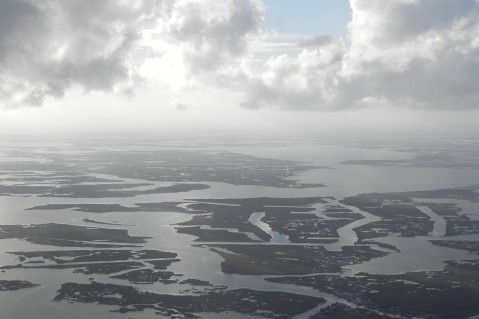The outbreak of large fires, some of the largest in history, in California and Oregon in August and September 2020 have renewed calls to make climate change the primary focus of political conversation and climate change mitigation more urgent. Lost or ignored in these calls for climate urgency are more immediate and pragmatic steps that Western states, the federal government, and inhabitants can implement to decrease the severity and destruction of fires next year, the year after, and so on. Pitting “it’s climate change!” against “it’s forrest governance” is a false dichotomy. It’s both/and; it reflects two different timescales that need to be address simultaneously.
That said, the chorus of voices on social media, Democratic politicians, from Biden to Gov. Newsom (CA), and climate change leaders have run into a discursive paradox, what I’ll call the “this is climate change” paradox. You’ve seen this in memes that depict burning forests, houses, bridges, cars, etc with the tagline: “Its climate change” or some equivalent message. The paradox goes as follows:
If in fact the climate has changed by 1°, as the best science indicates, then the old politics and slogan of “we need to do X to avert climate change” is outdated.
Therefore, the slogan “we need to do X about climate change” to fix crises such as fire and hurricanes doesn’t work in the near time horizon and the proximal spaces of crisis.
In the near term and proximal space we need to better govern fire ecology or hurricane ecology, for example, to ameliorate the suffering and destruction.
Climate mitigation or the non-carbon energy transition won’t work to lessen the death, destruction, and upending of life next year, the year after, or the next.
Climate mitigation and the non-carbon energy transitions are to prevent even worse futures of 2° or 3° or even more degrees of warming.
Indigenous people, inhabitants, disaster researchers, and policy makers have ready made ideas that could alter how we govern the socionature we now have, regardless of climate change.
Hurricane Katrina is a great case. It really doesn’t matter if climate change made Katrina worse, what matters are that the social vulnerabilities caused by racial and class inequality, Army Corp’s death levees, urbanization and industrialization of wetlands, and a non-existent evacuation plan. These are the temporal, historical, and location specific conjunctures that gave way to the drowning of New Orleans.
It feels good to say “this is climate change” or “if we don’t build climate solution X” we’ll have more fires and hurricanes. It settles scores. But it won’t further efforts to live with fire and water and to build more just and democratic socionatures for humans and more than human nature.
It’s partly amplification, over and over, that X proves climate change or shows we are in a climate crisis BUT under amplifies that crisis mitigation in the near term and proximal spaces can be addressed with tools distinct from climate or energy politics. Of course, we need both tracts: new and bold forest and fire governance practices AND rapid decarbonization and other climate mitigation and adaptation measures.
See these three articles on how we can build new forest-urban fire governance practices in the here and now.
Elizabeth Weil, “They Know How to Prevent Megafires. Why Won’t Anybody Listen?,” ProPublica,
Brad Plumer and John Schwartz, “These Changes Are Needed Amid Worsening Wildfires, Experts Say,” NY Times,
https://www.nytimes.com/2020/09/10/climate/wildfires-climate-policy.html
Nives Dolsak and Aseem Prakash, “West Coast Wildfires Reveal Massive Governance Failures,” Forbes,
Valerie Trouet, “What turned California forests into a tinderbox? Fire suppression, paradoxically,” The Guardian,
https://www.theguardian.com/commentisfree/2020/sep/14/california-fire-suppression-forests-tinderbox





